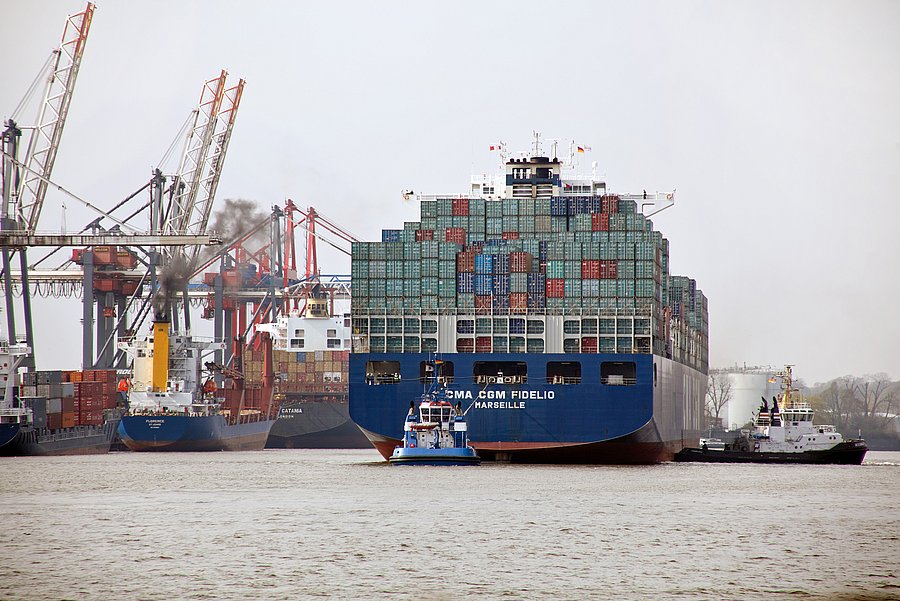Lecture series
Solutions for forward-looking clean industries

Container ship in the Port of Hamburg: Shipping is responsible for a significant proportion of global greenhouse gas emissions. // Photo Colourbox
The interdisciplinary lectures examine technologies, business models and political framework conditions that can drive forward a climate-neutral industrial transformation. Participants will gain insights into how complex challenges at the interface of technology, business and climate policy can be overcome.
The series is organised by Future Cleantech Architects, a Remscheid-based think tank and affiliated institute of the University of Wuppertal, together with the Wuppertal chairs of Sustainability Management (Prof. Dr Philipp Trotter), Construction (Prof. Dr Peter Gust) and Electromobility and Energy Storage Systems (Prof. Dr Benedikt Schmülling). "The challenge of closing the innovation gaps for global climate protection is enormous. Many of the required developments can only be mastered through fresh perspectives and interdisciplinary thinking. With this format, we want to encourage students to become part of the solutions for a climate-neutral industry themselves," says Dr Peter Schniering, Managing Director of Future Cleantech Architects.
The following sessions are on the programme:
- Introduction to FCA & a realistic look at the hydrogen hype (30 October) The series starts with an introduction to the work of Future Cleantech Architects. Participants can learn more about why hydrogen is not the often claimed silver bullet and what realistic ways there are to decarbonise some of the most difficult sectors to reduce - aviation and shipping.
- Cleantech innovation and debunking myths (11 December)
What is hype and what is truly transformative? This session takes a critical look at new cleantech solutions, distinguishes effective innovation with global leverage from mere symbolic politics, and shows where technological breakthroughs need to happen. - The Energy System of the Future: Balancing Supply and Demand (22 January)
How can the energy system of the future keep pace with society's growing demand? In this final session, participants will discover strategies for balancing generation, storage and consumption and gain insights into the technologies that could shape the energy landscape of tomorrow.
Bachelor's and Master's students from all faculties can take part. The lecture language is English. Students will receive a certificate. In order to qualify, participation in at least two of three lectures and completion of a final quiz is mandatory. From the summer semester, there will also be a curricular module in which students can earn credit points. Registration is possible via Moodle: https://moodle.uni-wuppertal.de/course/view.php?id=52889
Background
The Future Cleantech Architects (FCA) is a science-based, non-profit think tank based in Germany that is committed to developing innovative technologies to drastically reduce industrial greenhouse gas emissions. The focus is on the major polluters in the construction industry, aviation and shipping, as well as on the development of future energy systems. The collaboration with the University of Wuppertal was officially sealed in February 2025. The main aims are to impart expert knowledge, supplement the university's teaching programme, carry out joint research projects, apply scientific findings in practice and acquire funding.
